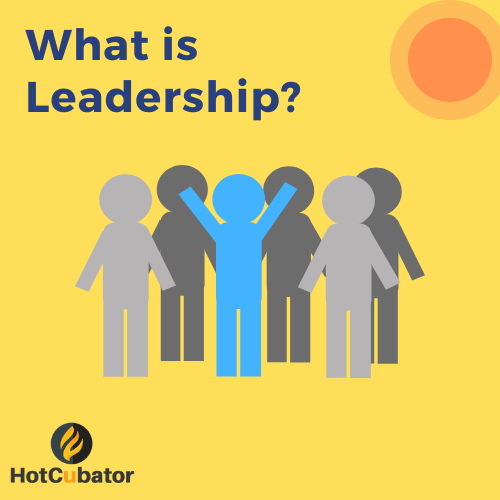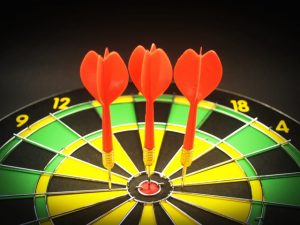
One of the most popular leadership coaches of our time – Tony Robins puts it this way – “Leadership is not a zero-sum equation. When one person harnesses their powers to lead, it strengthens the leadership opportunities of others, rather than diminishing them. That’s because the ultimate definition of leadership is empowering others to become effective leaders as well“. So Leadership refers to the ability to guide and direct individuals or groups towards a common goal or vision. While there is no rulebook of great leadership, but effective leadership involves setting clear objectives, inspiring and motivating others, making informed decisions, and fostering a positive and productive work environment.
Leadership styles can vary, but some common approaches include transformational leadership, which focuses on inspiring and motivating followers; transactional leadership, which focuses on setting clear goals and rewards for achieving them; and, servant leadership, which focuses on putting the needs of others before one’s own and empowering them to take ownership.
Leadership skills can be developed through education and training, as well as through practical experience and self-reflection. Effective leaders possess a combination of personal characteristics such as integrity, empathy, emotional intelligence, and a strong work ethic.
Leadership plays a crucial role in the success of organisations, as leaders shape the culture, set direction, and make key decisions. Strong leadership can lead to improved performance, employee satisfaction, and overall organisational success. On the other hand, poor leadership can have negative consequences such as low morale, high turnover, and poor performance. Throughout history, there have been many leaders who have had a significant impact on the world. Some of the greatest leaders include:
- Mahatma Gandhi: Gandhi was a political and spiritual leader in India who led the country’s non-violent resistance movement against British rule. He is considered to be the father of the Indian nation and a symbol of peace and non-violence.
- Martin Luther King Jr.: King was a civil rights leader in the United States who fought for racial equality and voting rights for African Americans. He is best known for his role in the American civil rights movement and for his famous “I Have a Dream” speech.
- Nelson Mandela: Mandela was a South African anti-apartheid revolutionary who served as President of South Africa from 1994 to 1999. He is known for his role in the ending of apartheid and for his efforts to promote racial reconciliation.
- Abraham Lincoln: Lincoln was the 16th President of the United States, who led the country through its Civil War, preserving the Union, ending slavery, strengthening the federal government and modernizing the economy.
- Winston Churchill: Churchill was a British statesman, who served as Prime Minister of the United Kingdom during World War II. He is known for his inspiring leadership during the war and for his speeches, which rallied the British people and the world against the Axis powers.
- Mother Teresa: Mother Teresa was a Catholic nun, who dedicated her life to serving the poor and sick. She founded the Missionaries of Charity, a congregation that has become one of the most recognized and respected organisations in the world.
- Malala Yousafzai: Malala is a young leader who is known for her activism for girls’ education and women’s rights, particularly in her native Pakistan. Despite being shot by the Taliban, she has continued her fight for education and human rights, becoming the youngest Nobel laureate.
These leaders have had a profound impact on the world and have been recognized for their integrity, vision, courage and selflessness. They have inspired and led change in their respective fields and left a lasting legacy.
So what’s so unique about leaders:
It is a tough question! None of the previous studies have been able to sum up an exact list that could be claimed as the ‘best’ or ‘most comprehensive’ leadership qualities. In fact, the leadership qualities are very diverse from one to another. However, here are some of the most common leadership qualities that were visible on most of the leaders in the world:
- Vision: The ability to set a clear and compelling direction for an organisation or team.
- Integrity: A strong moral compass and adherence to ethical principles.
- Emotional intelligence: The ability to understand and manage one’s own emotions, as well as the emotions of others.
- Communication: The ability to clearly and effectively communicate goals and expectations to others.
- Decisiveness: The ability to make difficult decisions in a timely manner.
- Adaptability: The ability to adjust to changing circumstances and be open to new ideas.
- Empowerment: The ability to give others the autonomy and resources they need to succeed.
- Self-awareness: The ability to understand one’s own strengths and weaknesses and continuously work on personal growth.
- Empathy: The ability to understand and relate to the perspectives and feelings of others.
- Confidence: The ability to inspire confidence in others by being decisive and consistent in actions and decisions.
It’s worth noting that not all leaders possess all of these qualities, and some may excel in certain areas while needing to improve in others. Additionally, different leadership styles may require different strengths and different situations may require different leadership approach.
Challenges faced by leaders:
Leadership isn’t always a fun job! More often that not, leadership is a challenging and demanding role, and leaders face a variety of obstacles and difficulties. Some of the most common challenges of leadership include:
- Decision making: Leaders are often required to make difficult and complex decisions that can have a significant impact on an organisation or group. This can be challenging, especially when there is limited information or conflicting interests.
- Communication: Effective communication is critical for leaders, yet it can be difficult to communicate effectively with a diverse group of people who may have different backgrounds, perspectives, and communication styles.
- Dealing with conflict: Conflict is a natural part of any organisation, and leaders must be able to navigate and resolve conflicts in a constructive and effective manner.
- Managing change: Leaders must be able to lead their organisations through change, whether it be a change in strategy, structure, or personnel. This can be challenging, as change can be difficult for people to accept and can lead to resistance.
- Balancing short-term and long-term goals: Leaders must balance the need to achieve short-term results with the need to plan for long-term success. This can be challenging, as short-term pressures may conflict with long-term goals.
- Leading and managing remote teams: With the rise of remote work, leaders have to find ways to effectively manage and lead a team that is not physically present. This can be challenging as it requires different leadership skills, communication channels and tools.
- Maintaining work-life balance: Leadership can be a demanding role, and leaders may find it difficult to balance the demands of their work with their personal and family responsibilities.
- Maintaining objectivity: Leaders are often required to make decisions that may affect their own interests. It can be challenging for them to separate their personal biases from the decision-making process.
Overall, leadership can be a challenging and demanding role that requires a wide range of skills and abilities. Leaders must be able to navigate through challenges, adapt to changing circumstances, and make difficult decisions in order to achieve their goals and lead their organisations to success.
References:
https://www.forbes.com/sites/kevinkruse/2013/04/09/what-is-leadership/?sh=60a01cf25b90








